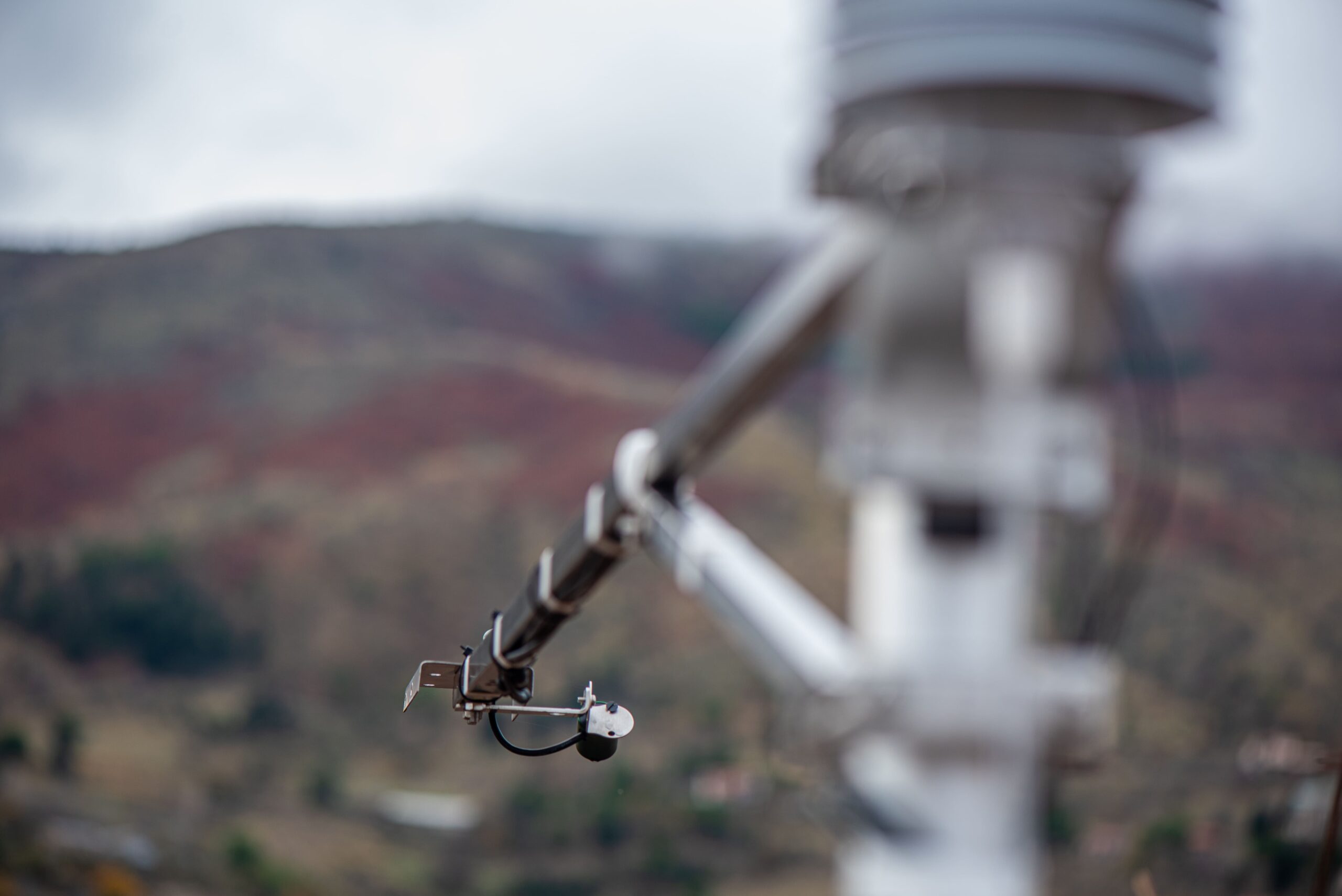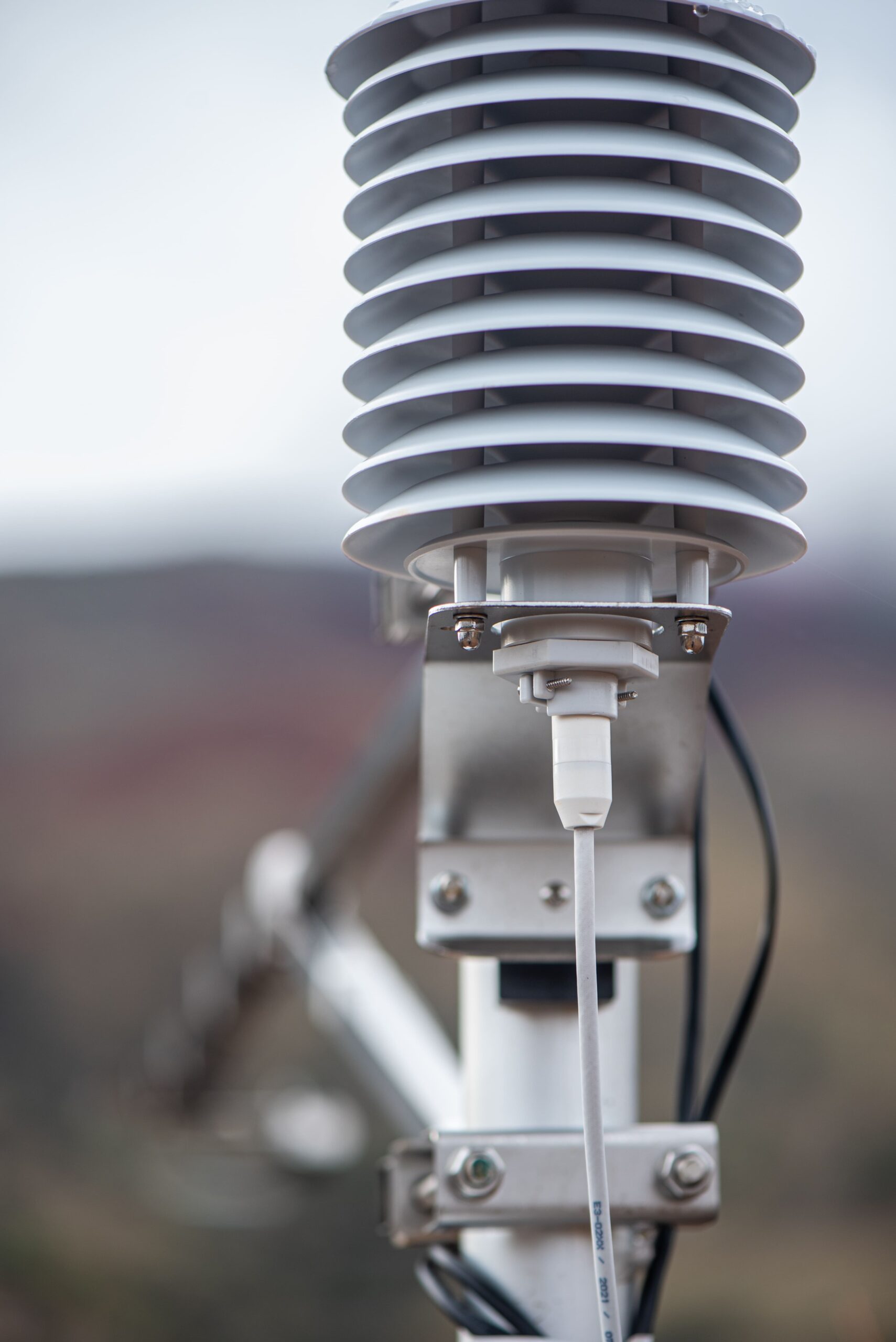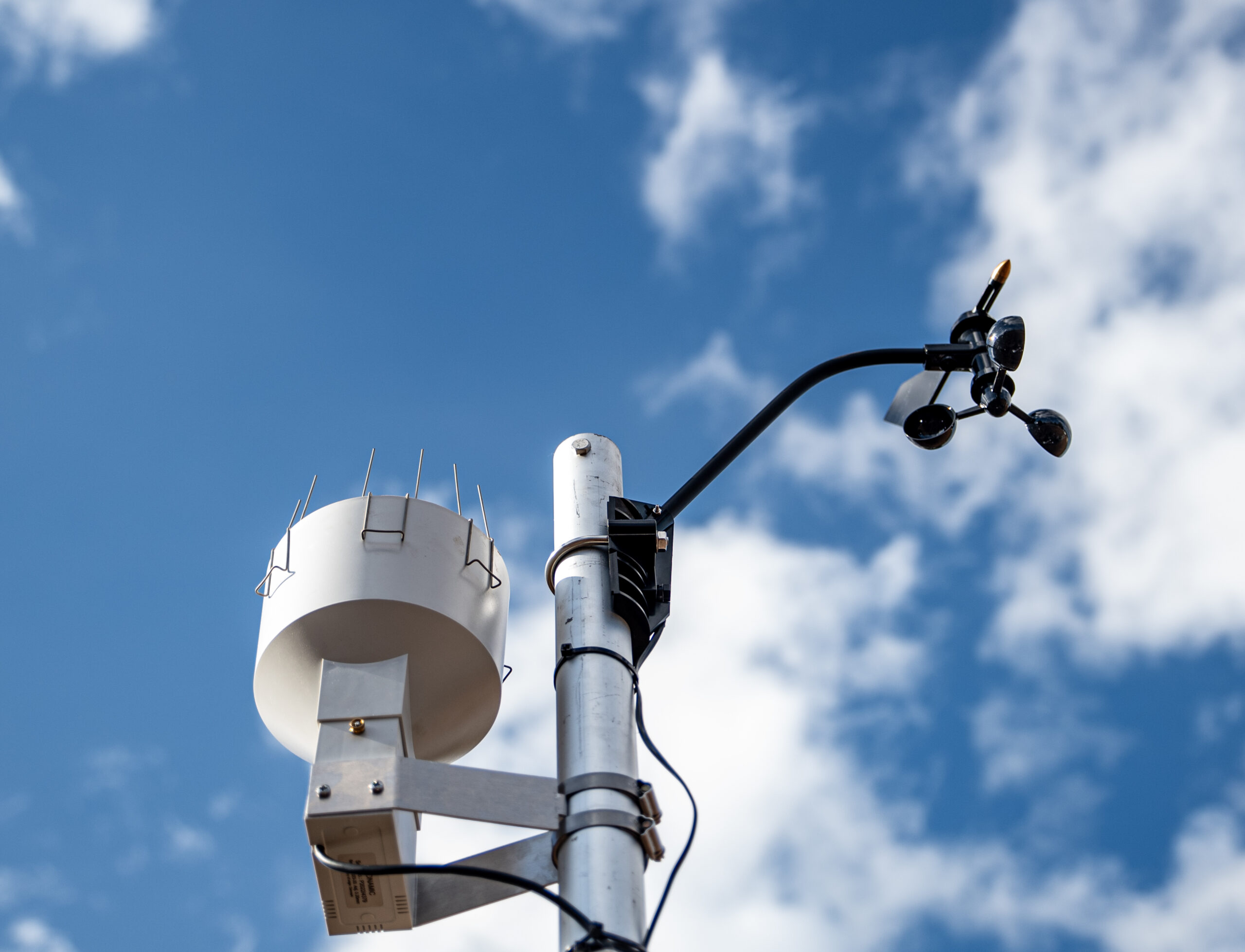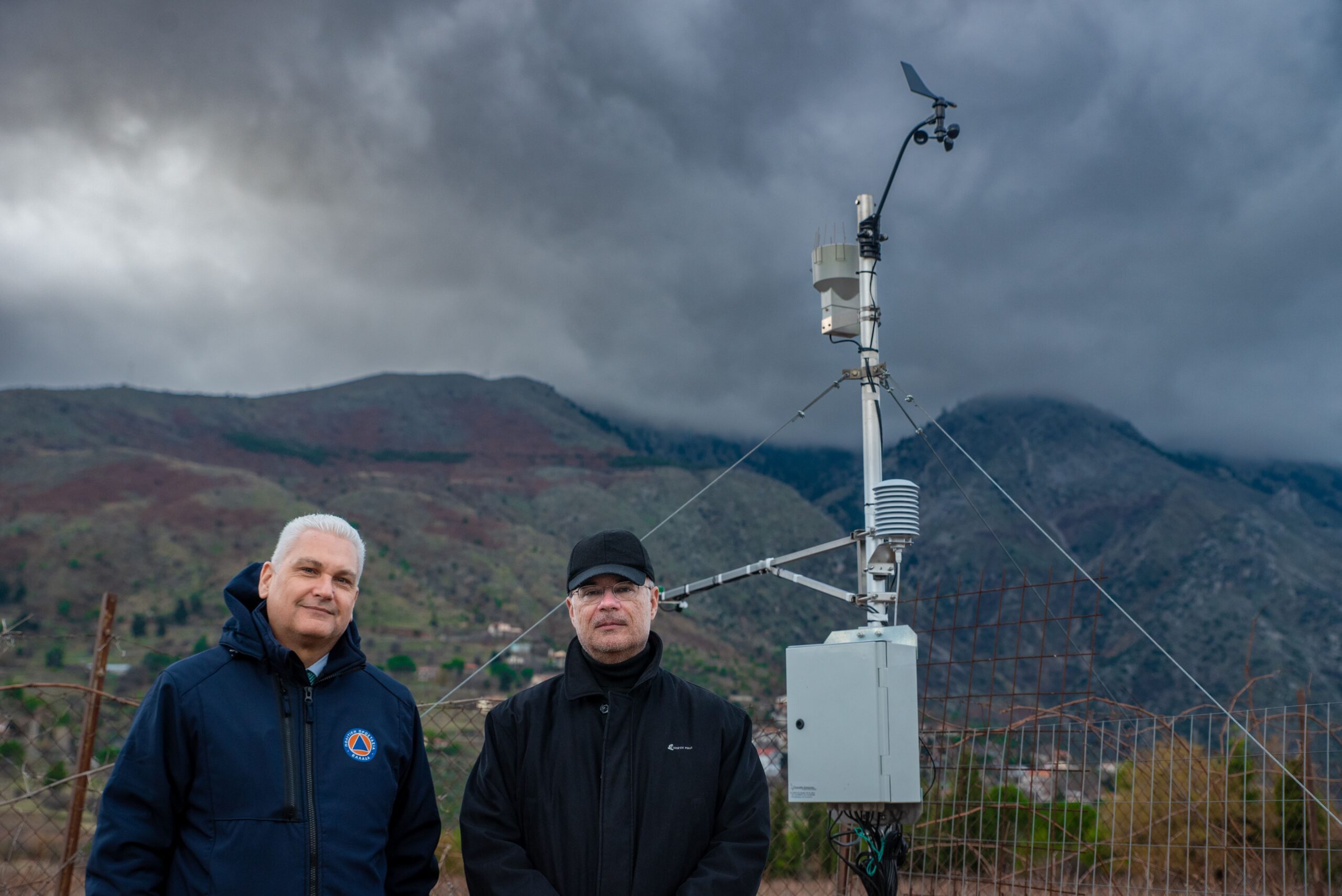A high quality weather station has been installed in the Aegialia area by initiative of the Region of Western Greece, one of the main partners of the Germ of Life project. It is one of the pilot test areas and has been promoted by Fokion Zaimis, Regional Vice Governor of Achaia, in response to the request of the Aegialia wine producers’ cooperative and the “Oinoxenia” Quality Network.
This station with multi-sensor meteorological parameters will form the basis of the network of stations with leading possibilities that will be installed throughout the territory of Aegialia.
The main objective of the Germ of Life project, co-financed by the Interreg Euro-MED program, is to create an innovative system of digital technologies to improve proactive management of drought risks.
Based on the dynamics of the primary sector, but also of wine, the Deputy Regional Governor of Achaia, Fokion Zaimis, had committed months ago to work, so that create a network of weather stations in the highlands of the region for better forecasting as well as for strengthening sustainable cultivation.
The weather station in Aegialia records and stores data with a time step of 10 minutes in UTC time, recording parameters such as precipitation, wind speed and direction, temperature and relative air humidity, soil water content, photosynthetic radiation, normalized vegetation index (NDVI), soil temperature at different depths, as well as incoming and outgoing reflectance in different zones. The data is provided to local growers to monitor weather conditions and protect their crops.
The station records and stores with a time step of 10 minutes in UTC time, the following parameters: Rainfall. Wind speed. Wind direction. Air temperature. Relative humidity. Soil water content. Photosynthetic radiation. Normalized differential vegetation index. Soil temperature at 4 levels (10, 25, 45, 60 cm). Incoming and outgoing reflection in 6 different zones.
“The meteorological station, with the latest technology, will enhance the safety of citizens and help in the effective management of natural disasters. This specific initiative will significantly help to protect the environment and adapt to climate change. At the same time, the weather station will it provides valuable information for the scientific community and will be a tool for launching effective solutions in difficult situations”, said Mr. Zaimis.
The pilot action in Greece is implemented by the Region of Western Greece and the Directorate of Civil Protection – Department of Civil Protection of Achaia, and by the Laboratory of Atmospheric Physics of the Department of Physics of the University of Patras, main partner of the Germ of project Life, whose Project Leader is the Professor of Atmospheric Physics, Athanasios A. Argiriou.
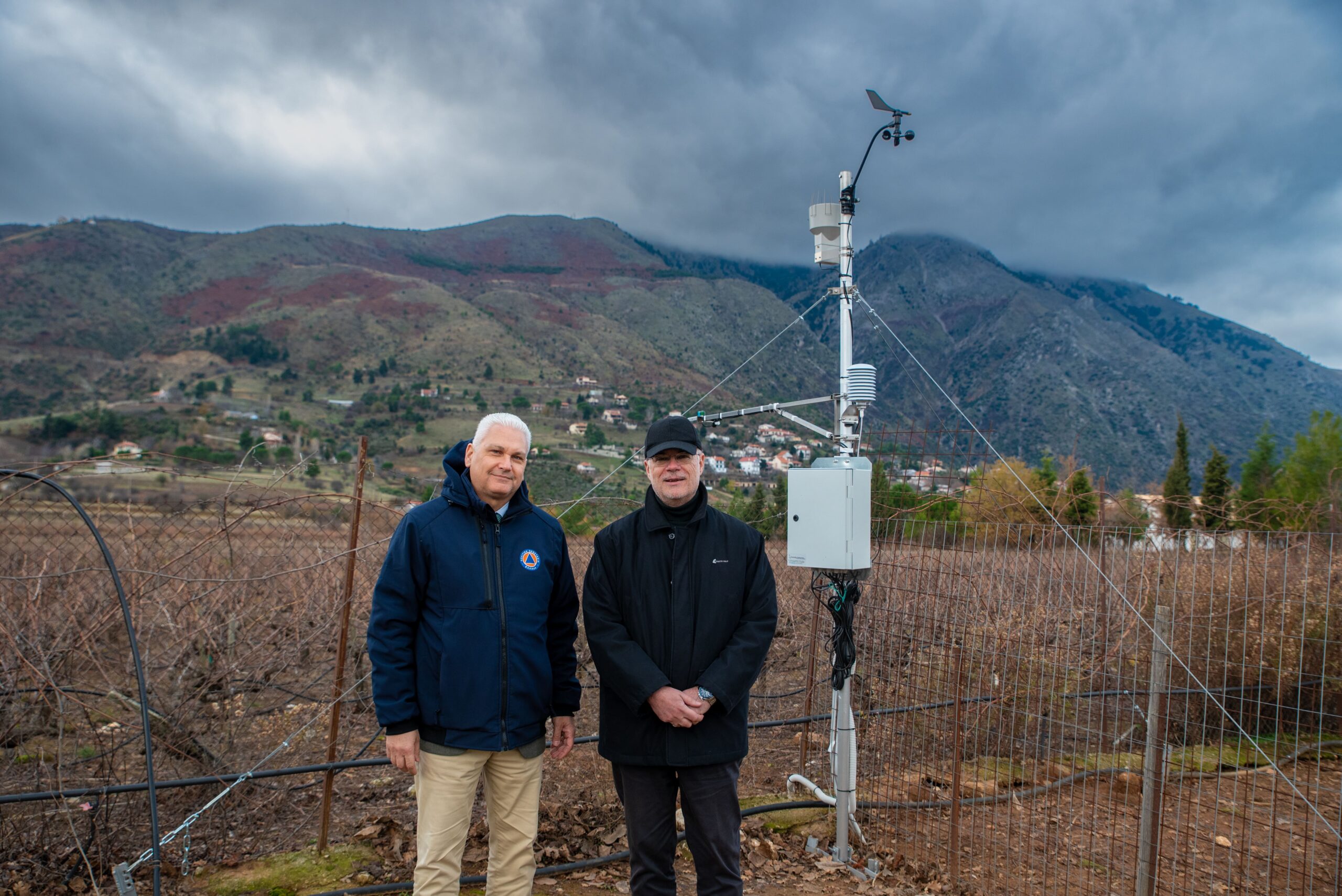
The Region of Western Greece participates in solutions testing and evaluation activities, the main objective of which is the analysis of the vulnerability of each area through measurements and calculations. At the same time, it develops strategies and action plans for each area of study, while promoting the dissemination of the project results.
